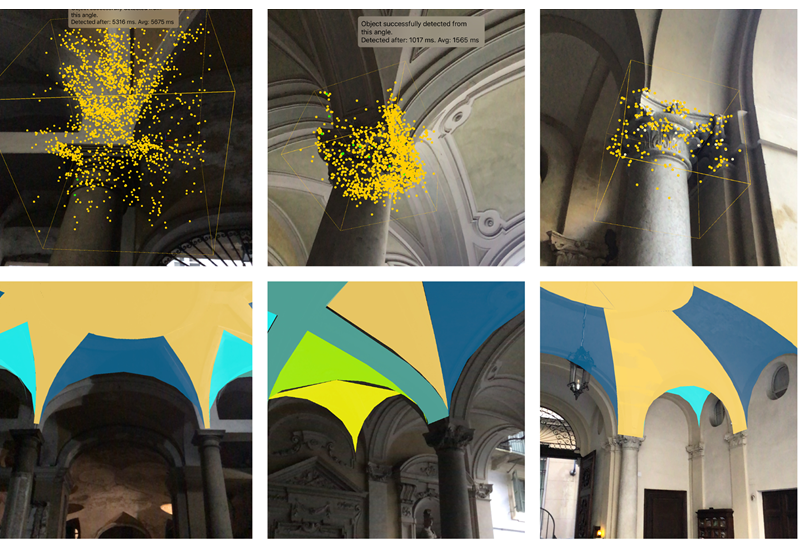Artificial intelligence and augmented reality for sharing of Cultural Heritage
Keywords:
Artificial intelligence, augmented reality, free and open source , cultural heritage, architectural heritageAbstract
Problems related to the use and sharing of Cultural Heritage increasingly involve the integration of digital technologies for analysis, interpretation, communication and dissemination. Artificial intelligence (AI), augmented reality (AR) and their links are proving particularly interesting in the enhancement of heritage, thanks to new possibilities of recognition and anchoring between digital products and physical features, that is between virtual and real. The experiences presented below are based on the idea that books, documents, artefacts, buildings, cities, as physical assets, can be a shared access key to knowledge on heritage, in order to navigate through the spread of information layers and levels of analysis. The choice of the employed digital tools was based on sustainability criteria for project development and scaling, favoring free and open source software (FOSS) or otherwise free to use software, to reduce implementation costs and improve output interoperability. In the described experiments, which have a marked heuristic character, starting right from the physical space, tools have been developed to enhance the experience of sharing cultural heritage and subsequently foster collective participation and safeguard actions.
Downloads

Downloads
Published
How to Cite
Issue
Section
License
Copyright (c) 2020 Roberta Spallone, Valerio Palma

This work is licensed under a Creative Commons Attribution-ShareAlike 4.0 International License.



